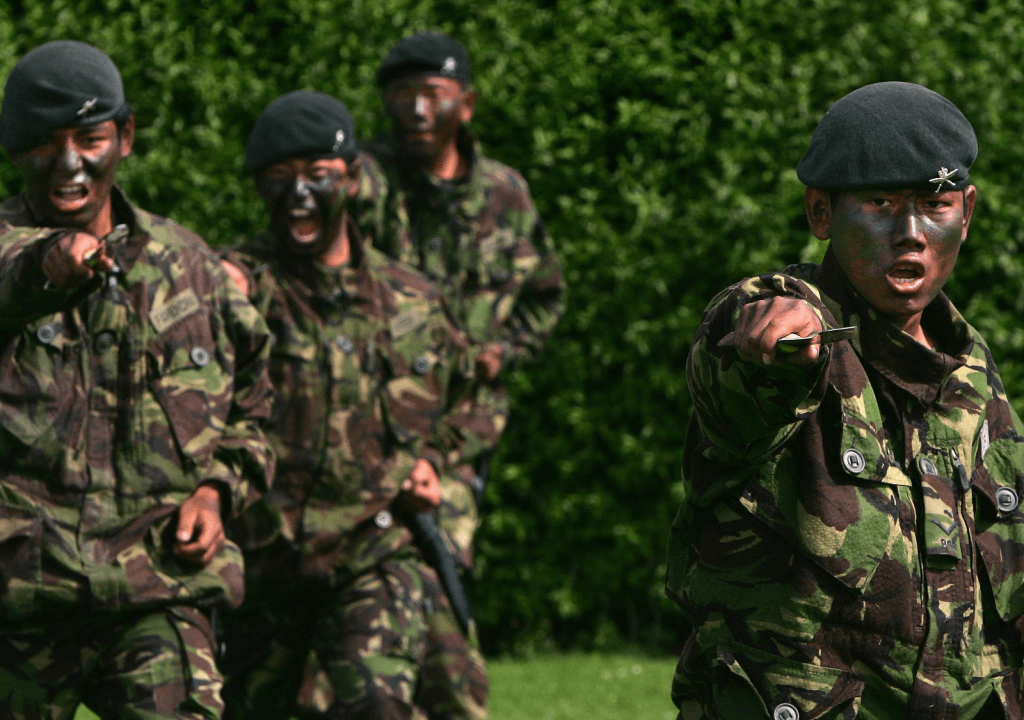In a prevalent trend, individuals from South Asian nations, grappling with overpopulation and high unemployment, often find themselves opting for high-risk employment opportunities. From Saudi Arabia to the UK, there is a noticeable presence of South Asian workers undertaking perilous jobs, driven by the need to support their big families despite the associated dangers. Notably, certain individuals in Nepal are particularly sought after for roles in security services, exemplified by the renowned Gurkhas, considered the elite members of security forces. These warriors, once serving in the armed forces of the British, German, and Soviet nations, are now being recruited into the Wagner Army, actively involved in the conflict on behalf of Russia against Ukraine.
Over the past year, there have been reports of Nepalese individuals actively engaging in the conflict in Ukraine. The gravity of the situation became apparent on December 4 when it was revealed that six Nepali citizens had lost their lives while participating in Russia’s invasion of Ukraine. Subsequently, Prime Minister Pushpa Kamal Dahal disclosed that over 200 Nepali citizens had enlisted in the Russian military since the full-scale invasion commenced in February 2022. PM Dahal also highlighted the presence of Nepalis in the Ukrainian army. And these figures are official counts, and the actual numbers may be higher.
Responding to the unfolding scenario, Dipendra Bahadur Singh, an official at the National Human Rights Commission Nepal, stressed the importance of diplomatic dialogues between Nepal and both Russia and Ukraine. He underscored the illegality and associated risks of Nepali citizens joining foreign armies without the explicit consent of the state.
Prime Minister Dahal acknowledged that while Nepal voted in favor of a UN resolution condemning Russia’s attempted annexation of four Ukrainian territories, some Nepalis fighting for Russia have been captured by the Ukrainian army. Furthermore, there is credible information about Nepali nationals serving in the Ukrainian army, adding complexity to the situation.
Nepal’s Ministry of Foreign Affairs issued a statement cautioning citizens against joining foreign armies in conflict-ridden nations. The emphasis was placed on the fact that Nepali citizens are enlisted only in the national armies of friendly countries under established traditional agreements. And Russia is not in the list.
As apprehensions escalated, the ministry urged Moscow to bring back Nepali citizens from the conflict zone and to refrain from involving them in the ongoing conflict. Presently, the government is engaged in diplomatic efforts to rescue citizens captured in the war, and local authorities are actively investigating how Nepalis are navigating their way into the Russian army.
Nepal has implemented a decisive measure by prohibiting its citizens from seeking employment in Russia or Ukraine. This decision aligns with a recent directive from Russian President Vladimir Putin, streamlining the naturalization process for foreigners who choose to join the Russian army. This directive extends the same privilege to immediate family members, creating an added incentive for recruitment.
Human traffickers operating in Nepal and India have played a central role in orchestrating the transportation of young Nepali men into the conflict in Ukraine. These traffickers exploit the vulnerabilities of individuals by presenting alluring prospects, such as fast-tracked citizenship or significantly higher salaries than what is available in their home countries. A notable crackdown in Nepal resulted in the arrest of twelve individuals in December, charged with trafficking approximately 150-200 men to Russia. These traffickers demanded substantial sums, around $9,000, masquerading as fees for tourist visas to Russia, only to later coerce the victims into joining the Russian military.
In grappling with the complexity of the situation, the Nepali government had previously appealed to Russia to repatriate the bodies of soldiers who lost their lives in the war against Ukraine, coupled with a demand for just compensation for the grieving families. Moreover, there are reports indicating that additional Nepali soldiers have been taken captive by Ukraine.
Outside of Nepal, other South Asian nations find themselves entangled in a comparable quandary. Frequently, males embark on illicit migration, often under the guise of tourist visas, taking advantage of countries with lenient visa programs. Those lacking proficiency in the Russian language come under scrutiny, finding themselves ensnared in military engagements, sometimes affiliating with groups like the Wagner military. The predicament extends to India, where reports unveil that certain individuals, under deceptive pretexts, have been dispatched to partake in the conflict in Ukraine. Families of these individuals are now urging the government for aid in repatriation.
Furthermore, apprehensions persist about potential recruits from Pakistan and Bangladesh. However, acquiring precise figures remains a formidable task due to the absence of robust citizen tracking systems and limited information flow from these countries.
Similar instances have surfaced involving individuals from diverse nations, including Cuba, Serbia, and several African countries, enlisting in the Russian military. Occasionally, agencies deceive individuals seeking employment in Russia and neighboring countries, redirecting them towards military service without proper informed consent.
People who are in need of food, those who are jobless and have nowhere else to turn, and even in the event of a conflict, these people will join. It follows that human migration to the conflict zone makes sense. However, it shows how the country has fallen short of ensuring job opportunities and population control. The situation is comparable to that of medieval Europe, when individuals served in other countries’ armies only in order to benefit financially. Sometimes people would sooner die than go hungry.








